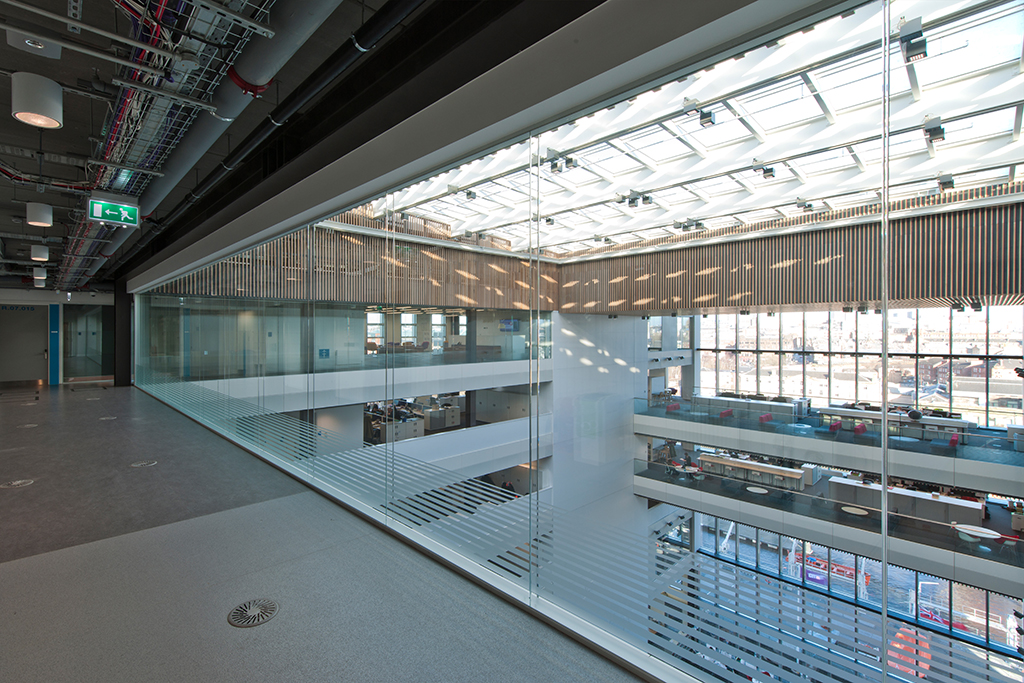
THE role of natural daylight in promoting health, wellbeing and productivity when designing the built environment is the subject of a new professional learning module approved by the Royal Institute of British Architects (RIBA).
Using scientific research and neurological discoveries, glass specialist Indeglås demonstrates the importance of prioritising contact with variations of natural light and has launched a new Continuing Professional Development (CPD) module titled ‘Daylight Transfer – a Guide to the Design Approach, Installation and Maintenance of Internal Glass’.
MD Jeanette MacIntyre said, “This new module is pivotal for architects, designers, engineers and those who procure buildings. We bring evidence-based data to support the notion that human performance, mental health and wellbeing should be placed at the heart of building design.
“We need to stop planning and procuring our buildings based on using cost models which only reflect construction stage rates; instead, the whole life value of the building, how well it supports human productivity and long-term health, are of far greater relevance to the creation of a net zero carbon in the circular and sustainable economy.
“As we build to protect mankind from the elements and to create environments which support a range of activities and collaboration, we can now use also evidence-based scientific data to design interiors which ensure occupants remain connected to daylight, an essential component in human health and productivity.”
The CPD module makes references to neurological research from institutions including Harvard Medical School and discloses new data on how the brain reacts to daylight.
“It has been proven scientifically that humans have an in-built requirement to experience the continually shifting patterns of daylight from morning to night,” Ms MacIntyre added. “Part of our brain controls the circadian rhythm, an internal biological clock which amongst other subconscious functions, regulates our sleep-wake cycle. This neural function is reliant on receiving coded messages from the eyes, linked to daylight patterns.
“Disrupting or confusing the biological clock – for example, by working in an environment devoid of exposure to the variations of natural light, can now be directly linked to chronic health conditions, such as sleep disorders, obesity, diabetes and depression.”
Ms MacIntyre, who rebranded her business as Indeglås in 2017 after completing a management buyout, has been working with the considered application of glass for more than 30 years. Indeglås is the sole distributor in the UK and Ireland for the product range of glass manufacturer DEKO of Denmark.
Indeglås has already delivered its CPD sessions to more than 50 management team members at City of Glasgow College. Indeglås designed the internal glass screens in both the Riverside and City campus developments at a combined contract value of £1.5 million.
The CPD seminar was also delivered to the estates team at University of Strathclyde, where Indeglås has completed numerous projects and recently secured a contract to inspect and maintain the internal glazed screens across three of the largest campus buildings.
Due to the impact of Covid-19 on traditional learning environments, Indeglås is in discussions with a provider to deliver the session online, information on which will be available shortly to book the learning as a webinar.
To find out more about the Indeglås CPD module, visit https://www.ribacpd.com/deko-scotland/26922/overview/








